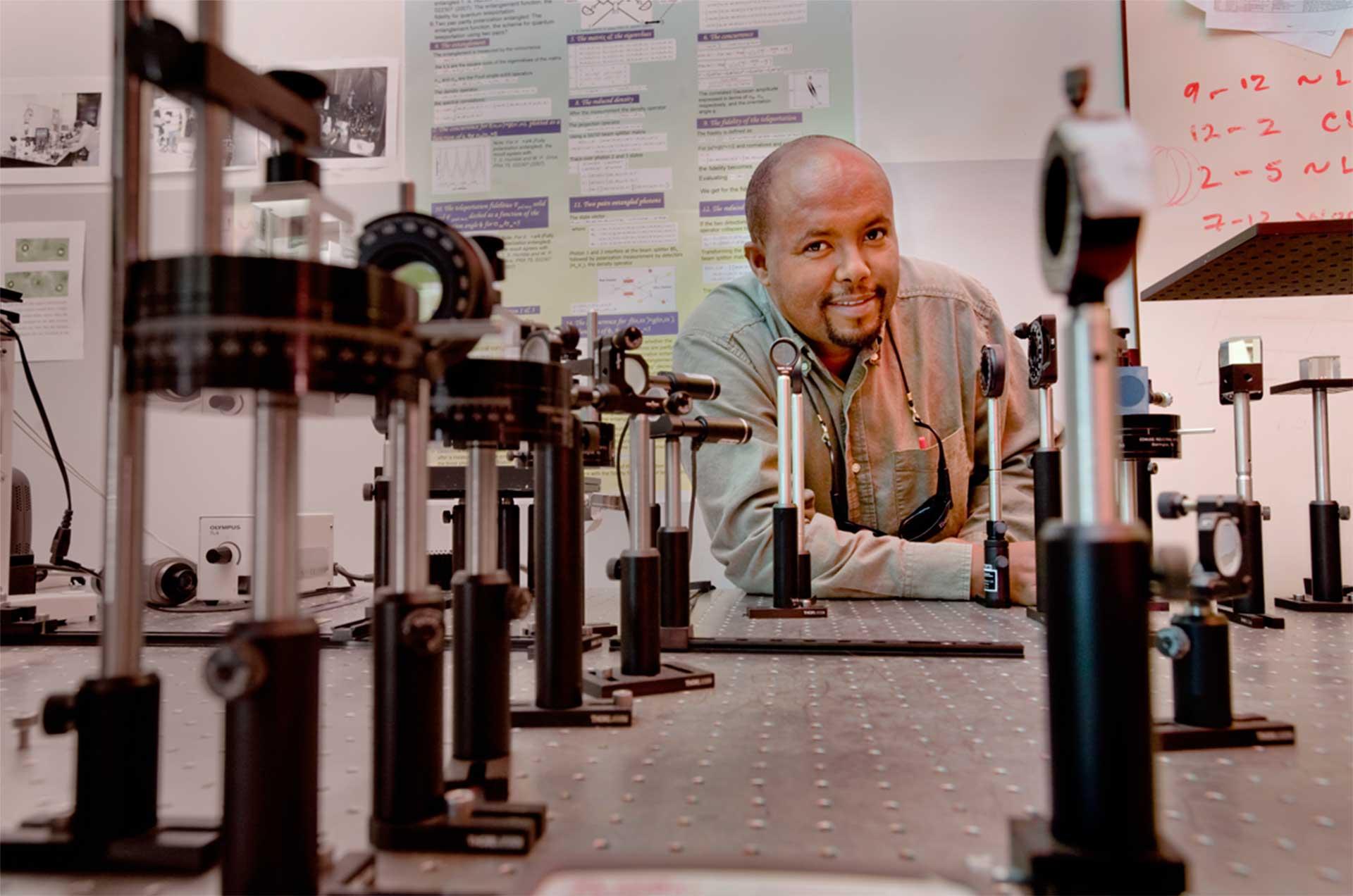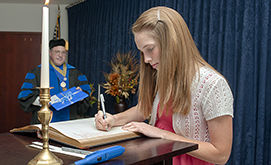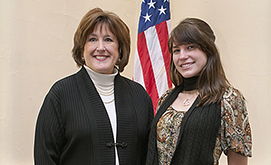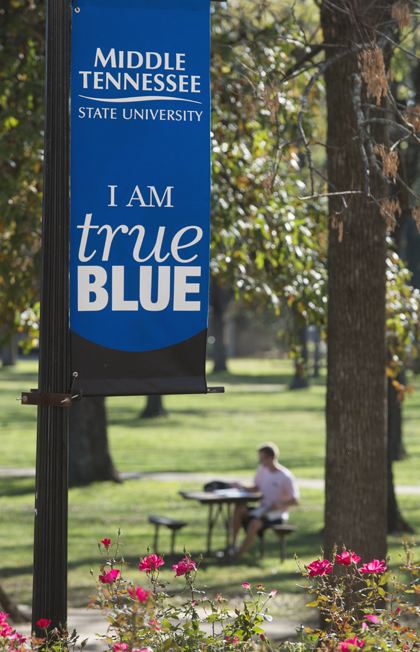
Physics
Gain career opportunities in industry, academia, and other fields that require creative and analytical skills.
Physics, Applied Physics Concentration, B.S.
The Applied Physics Concentration of the Bachelor of Science in Physics is offered through the College of Basic and Applied Science at MTSU.
Physics is a lot like chocolate—it goes with everything. That may be one reason so many of MTSU's physics majors started out in pursuit of a different degree (in recording industry, pre-medicine, music, etc.) only to discover that it was the physics of it all that fascinated them. Physics may take them on a different road back to their original interest—a career as a medical physicist, for example.
The Applied Physics concentration is designed for students interested in fields not traditionally associated with a physics degree, but that value the critical thinking and problem-solving skills associated with a physics major. Physics majors may pick from one of four different concentrations. The core curriculum gets all Physics and Astronomy majors on a level playing field and sets you up to pursue any concentration.
- Professional Physics
- Astronomy
- Applied Physics
- Physics Teaching
News Briefs

The healing power of physics
Originally a Biology major, Lauren Rigsby planned to go to medical school until a math professor pointed out she might be bored by the memorization and lack of applied problem-solving. Now, she's set her sights on career as a medical physicist. (Among other things, medical physicists help create treatment plans that ensure patients receive the right radiation dose in the correct area.)

Eureka!
After teaching the phases of the moon and planets to a second grade class during an outreach program, physics major Hillary Ball decided to choose teaching over graduate school. "I loved the eureka moments," she says, he looks on their faces when the light went on." She is fascinated with the wonders of physics and the beauty of what it reveals and found support for her desire to teach through the College of Education.
News Briefs
The healing power of physics

Originally a Biology major, Lauren Rigsby planned to go to medical school until a math professor pointed out she might be bored by the memorization and lack of applied problem-solving. Now, she's set her sights on career as a medical physicist. (Among other things, medical physicists help create treatment plans that ensure patients receive the right radiation dose in the correct area.)
Eureka!

After teaching the phases of the moon and planets to a second grade class during an outreach program, physics major Hillary Ball decided to choose teaching over graduate school. "I loved the eureka moments," she says, he looks on their faces when the light went on." She is fascinated with the wonders of physics and the beauty of what it reveals and found support for her desire to teach through the College of Education.
Related Media

There's almost no field of endeavor that doesn't have some part of it touched by physics. Not surprisingly, a B.S. in Physics can be that first step to any number of diverse careers! Examples include
- Acoustics researcher
- Architect
- Astronomer
- Astrophysicist
- Design engineer
- Doctor
- High school physics teacher
- Laser engineer
- Medical physicist
- Naval mine warfare analyst
- Patent attorney
- Process engineer
- Pilot
- Semiconductor engineer
- Software developer
- Spacecraft designer
- Radio Frequency (RF) specialist
- Video game developer
Employers of MTSU alumni include
- AFL Global
- Arlington High School
- Cheezburger Network
- Corvel Corporation
- Energetics Technology
- Fort Sanders Regional Medical Center
- Gearbox Software
- JET Program, Japan
- Robert Half Technology
- RF Signatures
- Memorial Hospital, Chattanooga
- Middle Tennessee Medical Center
- MiraCosta College
- Tennessee Valley Authority
- Texas Tech University
- University of Maryland



Degrees
Students in the Physics program can pursue a Bachelor of Science (B.S.) in Physics with concentrations in Applied Physics, Astronomy, Physics Teaching, or Professional Physics. Within the Professional Physics concentration are tracks in medical physics and astrophysics.
For complete curriculum details, click on the REQUIREMENTS tab above.
Undergraduate students can pursue a minor in Physics or Astronomy.
A minor in Physics is available for graduate students, as well.
Professional Licensure Disclosure
The Middle Tennessee State University (MTSU) College of Education’s teacher licensure preparation programs are accredited by the National Council for the Accreditation of Teacher Education (NCATE) and are eligible for accreditation by the Council for the Accreditation of Educator Preparation (CAEP). The Bachelor of Science (B.S.) in Physics with teacher licensure program at MTSU is designed to meet the licensure requirements set by the Tennessee Department of Education. Students should be aware that licensure requirements vary from state to state and are subject to change. MTSU has not made a determination whether a specific program will meet all of the requirements of another US state or territory. MTSU recommends that students who plan to seek licensure outside the state of Tennessee contact the appropriate licensing agency and discuss their plans with their advisor. To obtain current information about each state's and territory’s licensure requirements and any additional regulations, students should consult the US Department of Education’s website for state contacts at https://www2.ed.gov/about/contacts/state/index.html.
Related links

CONTACT US

Please fill in the form below and we will contact you very soon













